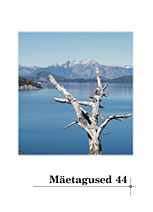Küüditamispoliitika kui muistne tava Uus-Assüüria impeeriumis 9.–7. sajandini eKr
Deportation as an Ancient Tradition in the Neo-Assyrian Empire during 9th–7th Centuries BC
Author(s): Vladimir SazonovSubject(s): History
Published by: Eesti Kirjandusmuuseum
Keywords: Assyria; Babylon; deportation; early totalitarian society; nasahu-politics; Tiglath-pileser III; Sargon II; Sennacherib
Summary/Abstract: The current paper focuses on the complicated issue of a very widespread political method, deportation, in the Neo-Assyrian Empire since the middle of the 9th century up until 612 BC. Naturally, the idea is much older – some Sumerian and Old Akkadian kings in Mesopotamia (e.g. Rimush of Akkad, etc.) had already deported certain groups of peoples of conquered territories in the 3rd millennium BC, though, this was not a common political practice at the time. Later, in the 1st millennium BC, Assyrians began to practice deportation as a regular political means in order to establish their hegemony over the Near East space, the “oikoumene” in the understanding of ancient Mesopotamians. Thus, all or nearly all of the Neo-Assyrian kings had actively incorporated this policy in the political system of their state, and frequently deported the conquered peoples of the Near East for intimidating purposes and to suppress any separatist action, as, e.g., revolts. Such politics had indeed a certain effect on the imperial stability, keeping the empire from collapse, yet also entailed a very negative concurrent impact on the Assyrian population, economy of the state and demography – all this contributed to the downfall and degeneration of the Neo-Assyrian Empire and the imperial system, ending in a complete destruction of the Assyrian capital cities – Nineveh and Ashur – by Babylonians, Scythians and Medes who conquered the weakened Assyria, demolished its power and killed the majority of native Assyrians at the end of the 7th century BC.
Journal: Mäetagused. Hüperajakiri
- Issue Year: 2010
- Issue No: 44
- Page Range: 153-174
- Page Count: 22
- Language: Estonian

